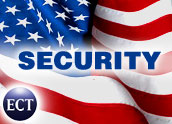
Using authorization given in the wake of the Sept. 11 attacks on the U.S., the National Security Agency (NSA) has secretly been working with major telecom companies to collect and store records of millions of phone calls, according to a published report.
USA Today reported Thursday that the NSA has worked with AT&T, Verizon and BellSouth to build a database of tens of millions of phone call records. Though the calls themselves are not being recorded, the NSA is believed to be analyzing the data for patterns that may suggest terrorist or other activity.
‘Strictly Targeting Terrorist Groups’
In a hastily called news conference, President Bush said intelligence activities “strictly target” terrorist groups and said the government “does not listen to domestic activities without court approval.”
“The privacy of ordinary Americans is fiercely protected in all our activities,” he said. “We are not mining or trolling through the personal lives of innocent Americans.”
Key members of Congress from both parties, meanwhile, said they intended to call the major telecom companies before their committees for hearings on the program.
The revelation comes at a time when the country’s intelligence-gathering operations are in the spotlight, with a vicious political battle seen lying ahead for President Bush’s choice for a new Central Intelligence Agency (CIA) director. Bush nominated Air Force Gen. Michael Hayden, who headed the NSA for six years starting in 1999, including the time frame when the program to have call records turned over to the agency began.
Meanwhile, the collection of information is sparking new outcries about the extent to which the Bush administration has gone with powers it was given after 9/11, when the country was interested in greater security and intelligence-gathering. Bush had previously said that only records of international calls would be collected from phone calls.
The newspaper reported that the NSA’s goal is to create a database of every phone call made within the United States.
Three to One
Unnamed sources told USA Today that customer names, street addresses and other identifying information is being scrubbed from the data before phone companies turn it over, but it’s believed that phone numbers are included, meaning that such information could easily be obtained by cross-checking other existing databases.
The three telecom companies involved in the program have a total of about 200 million customers. It is believed that the data being turned includes mobile phone records as well as data on calls made from landline phones.
The paper reported that Qwest has refused to cooperate with the NSA on the data collection, which could leave a significant gap in the database, since Qwest has deep penetration for calling services in large swaths of the western United States.
The notoriously secretive NSA has refused to acknowledge the existence of the program and spokesperson Ken White told the E-Commerce Times that it focuses first and foremost on detecting patterns in a range of intelligence data and not in seeking to spy on individuals.
AT&T has already been sued by the Electronic Frontier Foundation (EFF) for its decision to cooperate with efforts to wiretap both phone calls and e-mails with international origins or destinations. Bush had reportedly authorized the NSA to tap those communications without a warrant, citing powers granted him after Sept. 11, including those contained in the USA-Patriot Act.
Protective Custody
Earlier this month, the Bush administration asked a court to throw out the EFF suit, citing national security concerns.
Kevin Bankston, a staff attorney with the EFF, said the government and phone companies have typically worked together on “targeted, retail surveillance” in which warrants were sought to track the calls of individuals whom law enforcement believed were engaged in criminal activities.
“What we’re alleging is that there’s been a shift to wholesale data surveillance that the law doesn’t contemplate,” Bankston told the E-Commerce Times.
In fact, the Consumers Union says phone companies had long adhered to a strict policy of allowing information exchange only with a court warrant, a policy put in place when AT&T was a monopoly and maintained for decades until Sept. 11.
Bush’s supporters say extraordinary measures are necessary to protect the U.S. in the age of terrorism and point out that no successful attacks on U.S. soil have taken place in nearly five years, which could be evidence that surveillance programs are working by helping law enforcement identify potential terrorists or foil plots or simply as a deterrent to such subversion.
The revelations of the NSA program come as consumer advocates are pushing for stricter protections for private phone records, not just to shield them from government but also from other private citizens.
The practice of “pretexting,” in which third parties claim to be a phone customer in order to obtain phone records, is already the subject of several proposed pieces of legislation.























































Social Media
See all Social Media